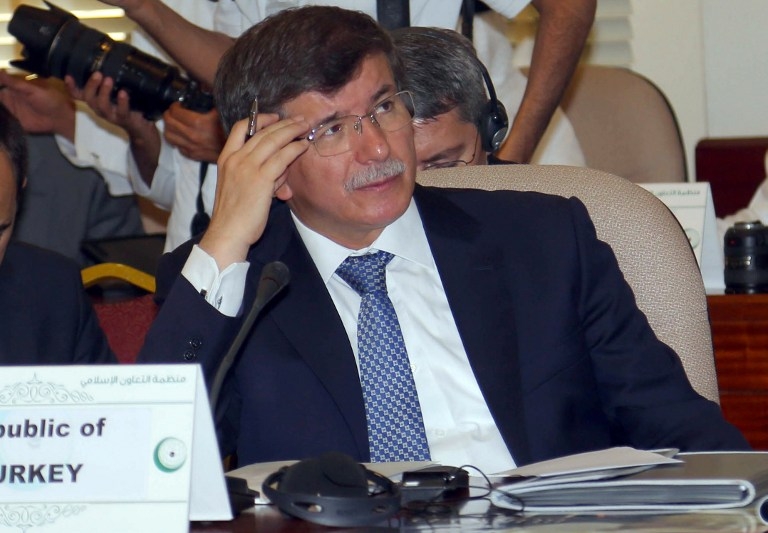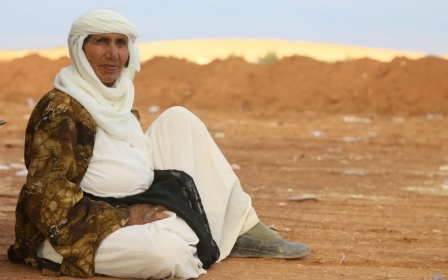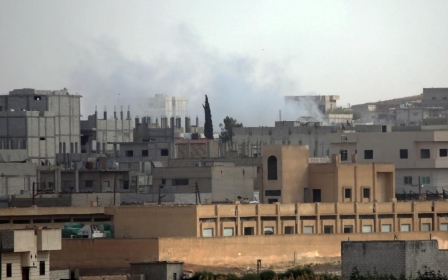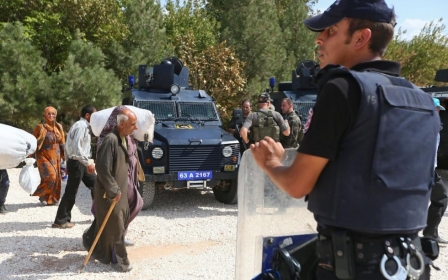Turkish government seeks mandate for military action against IS

The Turkish government has submitted an inclusive motion to parliament to expand authorisation to act against recent security threats from Iraq and Syria, Turkish Deputy Prime Minister Bulent Arinc said.
"Considering Turkey's related position, we have worked out and prepared a document uniting two separate motions on Iraq and Syria, enabling all necessary measures at one time, so as to respond to all threats and risks," said Arinc, speaking after Tuesday's Council of Ministers' meeting chaired by Prime Minister Ahmet Davutoglu.
The Turkish parliament will discuss the motion, giving the authority to the government and the armed forces to act accordingly to threats from Syria and Iraq, during a special session on Thursday.
"If there will be a request for closed session, we will consider it," Arinc added.
Asked if the motion would include authorisation for the Turkish Armed Forces for a cross-border action into Iraq and Syria, if necessary, Arinc said the motion seeks expanded authorisation for all such conditions and possibilities.
The minister emphasised that the motion also aims to give the government and armed forces authority for action against elements in Syria and Iraq who pose a threat to the country, including the Islamic State, which has recently become a growing threat for the whole region.
Turkish troops are currently authorised by the parliament to operate across the Iraq border to defend Turkey against the outlawed Kurdistan Workers’ Party, or PKK.
The session on Thursday was originally aimed to extend the term of already existing motions on Iraq and Syria that were going to expire on 4 and 17 October respectively.
In recent weeks, Turkish officials have been cautious about joining the coalition. Last week, even while President Recep Tayyip Erdogan gave indications during a trip to New York for the UN General Assembly that the country was inching towards joining the coalition, new Prime Minister Ahmet Davutoglu released a statement denying that Incirlik Base in southern Turkey had been used for strikes in Syria.
Some analysts had suggested that Ankara would become more active once 49 Turkish hostages, held by IS, were released.
Cengiz Candar, from at the Turkish liberal daily Radikal, wrote that Ankara finds itself trapped between a number of options that are hard to reconcile.
“[To safeguard its security, Turkey is contemplating] taking a more active part in the anti-IS coalition so as not to jeopardise its relations with Washington further, not to rock the boat with the Kurds and spell the end of the ‘peace process’ in Turkey, and to remain consistent with its avowed objective of removing the Damascus regime,” he wrote in Al-Monitor.
But even after the hostages arrived home on 20 September, analysts also highlighted that Turkey might still be hemmed in by a burgeoning Islamic State threat within the country, used as a recruiting ground for the group and a pathway for its fighters headed to Syria and Iraq.
These realities have led some observers to note that while parliament may on Thursday approve the motion to deploy Turkish troops on the ground in Syria and Iraq, Erdogan's government may not act upon it.
Turkey has seen a massive influx of Kurdish refugees from Kobane, or Ain al-Arab (as it is known in Arabic), since IS militants besiged the Syrian border town, drawing more than 160,000 refugees to seek shelter in Turkey.
A US-led coalition launched airstrikes against IS targets in Syria last week and US President Barack Obama has pledged to build deeper international support for the campaign.
Turkey has called for the removal of President Bashar al-Assad in Syria and has also urged the US and the UN to produce a comprehensive strategy for Iraq and Syria that would also include the establishment of no-fly and safe zones in the border region for displaced people fleeing the fighting.
New MEE newsletter: Jerusalem Dispatch
Sign up to get the latest insights and analysis on Israel-Palestine, alongside Turkey Unpacked and other MEE newsletters
Middle East Eye delivers independent and unrivalled coverage and analysis of the Middle East, North Africa and beyond. To learn more about republishing this content and the associated fees, please fill out this form. More about MEE can be found here.




